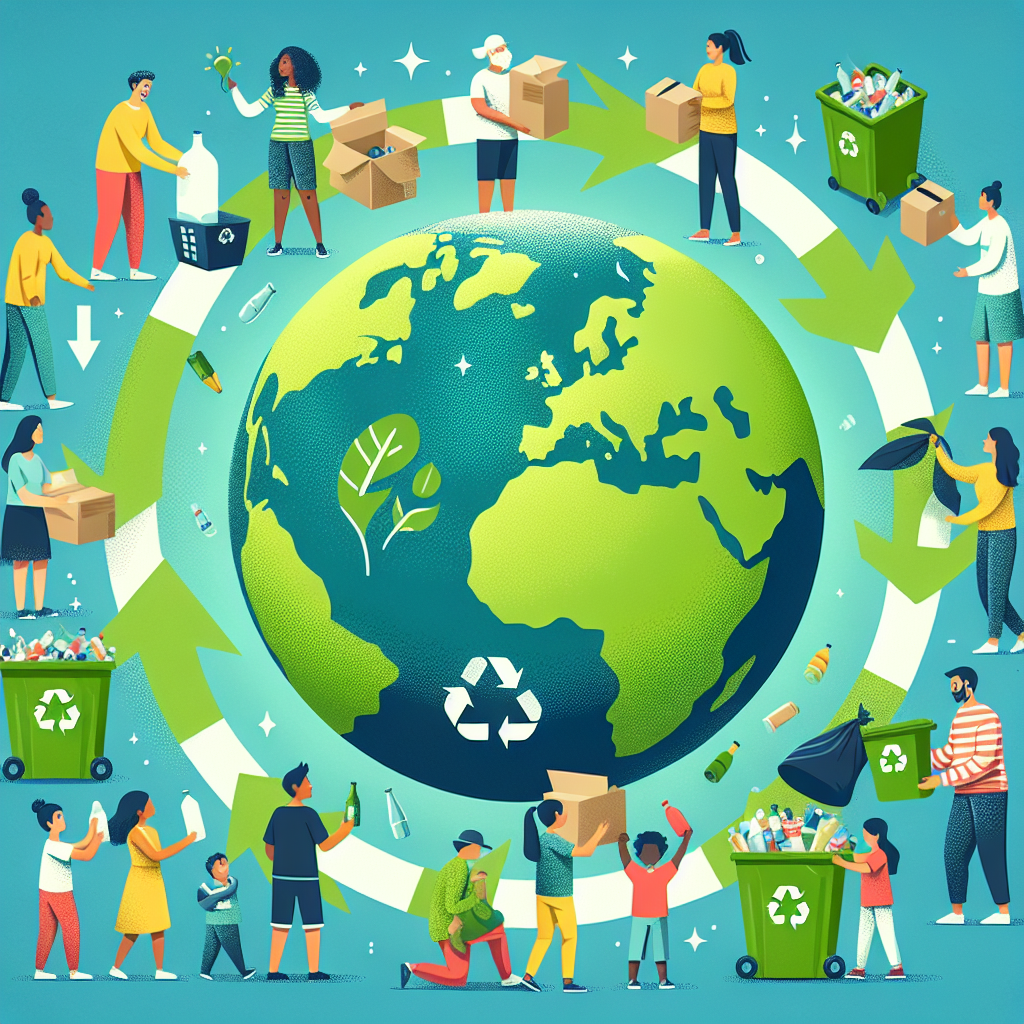As global awareness about environmental issues rises, communities around the world are stepping up to reshape the narrative of waste management and recycling. The recycling revolution is not just a concept; it’s a movement that embodies grassroots initiatives, innovative practices, and an unwavering commitment to sustainability.
From Awareness to Action
The past few decades have seen a significant shift in public awareness regarding waste management and environmental conservation. As plastic pollution, food waste, and landfill overflow continue to pose serious threats to our ecosystems, communities have realized the importance of taking collective action. This awareness has spurred various local initiatives aimed at reducing waste and promoting recycling.
Community-Driven Initiatives
-
- Local Programs: Many cities and towns have launched their own recycling programs, tailored to the specific needs and resources of their communities. From single-stream recycling to organics collection, these initiatives often allow residents to participate easily. Local governments frequently host workshops to educate citizens on best practices for recycling and waste reduction.
- Local Programs: Many cities and towns have launched their own recycling programs, tailored to the specific needs and resources of their communities. From single-stream recycling to organics collection, these initiatives often allow residents to participate easily. Local governments frequently host workshops to educate citizens on best practices for recycling and waste reduction.
-
- Partnerships with Schools: Educational institutions have become crucial players in the recycling revolution. Schools across the globe are developing programs to teach students about sustainability from a young age. By integrating recycling into school curriculums and organizing recycling drives, children learn the importance of protecting the planet early on and bring these lessons home, influencing family behaviors.
- Partnerships with Schools: Educational institutions have become crucial players in the recycling revolution. Schools across the globe are developing programs to teach students about sustainability from a young age. By integrating recycling into school curriculums and organizing recycling drives, children learn the importance of protecting the planet early on and bring these lessons home, influencing family behaviors.
-
- Community Gardens: The rise of community gardens not only provides fresh produce but also promotes sustainable practices such as composting. These gardens encourage neighbors to work together and understand the value of returning organic waste to the soil, creating a cycle of sustainability.
Innovative Recycling Solutions
Communities are also leveraging technology and innovation to enhance efforts—examples include:
-
- Mobile Apps: Several cities are developing apps that inform residents about recycling guidelines, collection schedules, and locations for disposal of hazardous materials. These tools help demystify, making it more accessible.
- Mobile Apps: Several cities are developing apps that inform residents about recycling guidelines, collection schedules, and locations for disposal of hazardous materials. These tools help demystify, making it more accessible.
-
- Repair Cafés: These community-led spaces allow individuals to bring in broken items, from electronics to clothing, to be repaired instead of discarded. This not only reduces waste but fosters a culture of creativity and resourcefulness.
Success Stories
-
- San Francisco, California: Pioneering one of the most ambitious zero-waste goals in the United States, San Francisco has implemented policies that mandate composting and recycling for all residents and businesses. Through these efforts, the city has diverted more than 80% of its waste away from landfills.
- San Francisco, California: Pioneering one of the most ambitious zero-waste goals in the United States, San Francisco has implemented policies that mandate composting and recycling for all residents and businesses. Through these efforts, the city has diverted more than 80% of its waste away from landfills.
-
- Kamikatsu, Japan: This small town has become a model for waste reduction, with an intricate sorting system that separates waste into 45 categories. Community engagement plays a critical role here, as residents are actively involved in the sorting process, creating a sense of ownership over the town’s waste management.
- Kamikatsu, Japan: This small town has become a model for waste reduction, with an intricate sorting system that separates waste into 45 categories. Community engagement plays a critical role here, as residents are actively involved in the sorting process, creating a sense of ownership over the town’s waste management.
-
- Bristol, England: Awarded the title of European Green Capital, Bristol has implemented numerous initiatives, including neighborhood reuse schemes and community engagement programs, to reduce waste. The city showcases the effectiveness of creating a united front on sustainability.
Challenges and Future Directions
Despite the progress, challenges remain. Lack of education and resources, especially in underserved areas, poses significant hurdles. Many communities are working to address these gaps through targeted outreach and partnerships with non-profit organizations.
Moving forward, the recycling revolution will rely heavily on collaboration among stakeholders—government, businesses, and residents. By sharing knowledge and resources, communities can innovate and create effective solutions tailored to their specific needs.
Conclusion
The recycling revolution represents more than just a shift in waste management practices; it embodies a broader cultural transformation toward sustainability and environmental stewardship. As communities lead the way, their successes pave the path for other regions to follow. Together, through awareness, innovation, and collective action, we can build a greener, more sustainable future for generations to come.
The journey is ongoing, and each action counts—be it recycling, composting, or simply educating others. In this revolution, everyone has a role to play.




